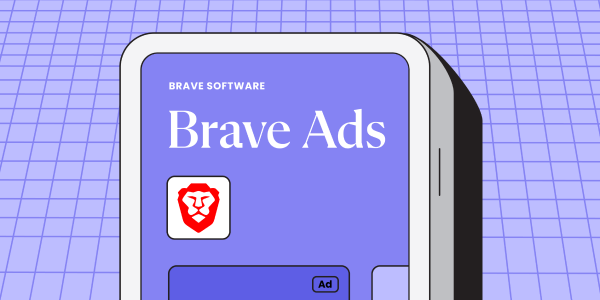When Google first announced plans to disable third-party cookies on Chrome in January 2020, the news hit ad tech like an earthquake. But a lot has changed in the past four years. Now, as Google finally begins acting on those plans, the death of the third-party cookie is looking a lot more like opportunity than crisis.
No doubt, this major shift will still present significant challenges. But more and more brands and agencies are upgrading their approach by building out their first-party data strategies.
The world is moving toward privacy – whether or not Big Tech likes it
The last four years made it clear that third-party cookie deprecation is just the tip of the iceberg on the privacy paradigm shift. Brands need to embrace privacy, rather than playing whack-a-mole with each new product change or regulation.
Privacy has entered the zeitgeist and is here to stay. People continue to become more aware and impacted by data breaches, identity theft and other risks often born from data collected on them without their knowledge. Consumers are moving to platforms like Proton and Brave that offer better default privacy settings, turning on more restrictive ad blockers and opting out of invasive tracking.
The combination of public sentiment and policy action from government regulators is pushing the tech world to develop and adapt new, stronger privacy in new and existing product offerings. For example, Apple is marketing privacy directly to consumers, and we’re seeing big players like Adobe and Salesforce offering first-party options that give brands a better handle on their business and marketing data.
Brands see universal IDs for what they are: third-party tracking in disguise
Plenty of ad tech “innovation” in the last several years essentially boiled down to ways to maintain the status quo in spite of third-party cookie deprecation – to find ways to steer clear of blatant noncompliance without giving up the old ways of ad targeting.
But brands increasingly recognize that these “solutions” are more like short-term patches. Take universal IDs, for example: At their core, UIDs are just new ways to cross-site track – and still bring the privacy risks and liabilities that brands are increasingly looking to leave behind.
These are false paths forward that will inevitably hit dead ends as regulators – pushed by public sentiment – add progressively tighter privacy demands.
Moreover, it’s becoming clear that brands can’t look to Big Tech and other businesses that depend on third-party data for truly privacy-centric solutions. These companies’ bottom lines depend on gathering data and linking it together to better understand Web users, so they can ultimately sell that visibility. They’re incentivized to develop workarounds and temporary fixes, rather than truly future-ready solutions.
The value of contextual and first-party-based targeting is impossible to ignore
In addition to enhancing privacy, reducing complexity is a top priority for every marketing leader. A big part of that complexity problem is that brands let the hype around complicated targeting put far too many layers between them and their customers.
Moreover, each piece of ad tech middleware is taking a cut of your ad spend. While the early promise was that these middlemen would add enough value to justify their cuts, it’s become nearly impossible to get a clear read on ROI.
Demands for greater transparency have become the background music of the ad tech world. But the clear thing standing in the way of brands getting full-funnel attribution is the fact that they’re working with so many players and so many layers. Each vendor brings its own set of attribution standards, and despite efforts to centralize attribution, there’s an underlying conflict of interest: With every vendor competing against the big fish in ad tech, they’re all reluctant to grant too much transparency.
Moving toward a first-party data strategy immediately cuts out almost all of that complexity, added cost and signal loss. Brands are seeing that, by having first-party relationships with customers and using first-party media channels, their interest signals are stronger and more accurate, their ad spend is more optimized, and the total experience is much better for the privacy of the user.
And while most brands will no doubt still use ad tech tools and partners to support their first-party strategies, this shift presents a grand reset: an opportunity to add partners and tools carefully and purposefully and demand more of those partners. Marketers can build a functional ad tech toolkit, where each partner or tool is adding direct, transparent, measurable value – not just rent-seeking and extracting value.
Now is the time to build a first-party competitive advantage
The entire cookie deprecation conversation has become a bit of a “boy who cried wolf” situation. But unlike the ending of the famous fable, the death of cookies won’t kill digital advertising. It’s a symptom, rather than the cause, of the broader privacy shift that’s already well underway in our world.
Likewise, it’s become clear that the move toward first-party data strategies represents an objective up-leveling of visibility and value (for brands and their customers), rather than a forced reaction. With data and value loss already endemic on third-party platforms, the only way for modern brands to win is to adopt true first-party approaches to regain control of their data, their ad spend and their customer relationships.
So, leaving the “will they or won’t they” drama of Google cookie deprecation behind, brands that continue seeking short-term fixes and shortcuts will see their investments and efforts repeatedly hit new dead ends as privacy-centric technologies and regulations move us forward. Those brands that embrace and solve for movement toward a privacy-first Web will be at a competitive advantage: aligning themselves with a privacy-first future, recapturing control and visibility of their web analytics and ultimately driving more effective, authentic advertising experiences for customers.















